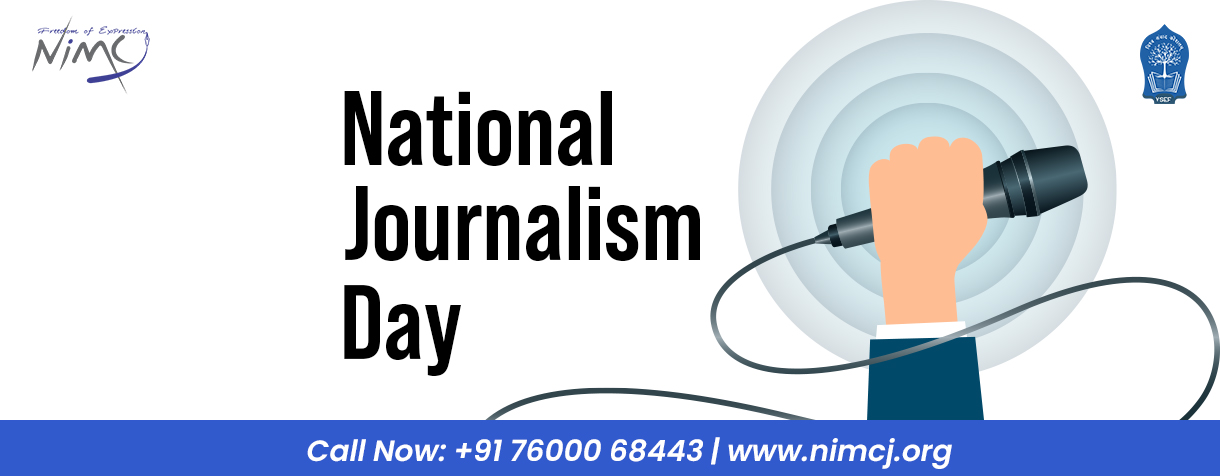
National Journalism Day is celebrated on 16th of November in India. A day of recognition and appreciation for the relentless efforts of journalists. Who dedicate their lives to uncovering truth, reporting stories, and shaping public discourse. This moment offers a chance to delve into the heart of journalism. Its evolution and significance hold in today's globalized world.
The 1956 Press Commission forms a committee to protect journalism ethics. That upholds press freedom in India. This vision materialized a decade later with the creation of the Press Council. The primary goal was to protect press freedom. Enhancing and maintaining journalistic standards in the country.
The Press Council of India is a mandated body covering the full range of the print media sector. It exercises jurisdiction over all print media in India.
The Council oversees print media conduct and acts as a regulatory authority.
Its role encompasses upholding the utmost levels of journalistic integrity and behaviour.
National Journalism Day centres on acknowledging journalism as a fundamental democracy pillar. A free and vibrant press acts as a check on governmental power. Ensuring transparency, accountability, and the protection of individual rights. The absence of independent media would harm democracy's power balance.
One of the most significant contributions of journalism is shaping public opinion. By presenting unbiased, well-researched, and comprehensive news stories. Journalists enable citizens to make informed decisions. In an era of misinformation and fake news credible journalism serves as a guiding light. Helping individuals navigate through the sea of information and arrive at well-founded conclusions.
While journalism serves as a beacon of truth, it faces a myriad of challenges in today's landscape. The rise of sensationalism, commercial interests, and political pressures. It can compromise the integrity of news reporting. To maintain its credibility, journalism must adhere to a strict code of ethics. Upholding principles of objectivity, accuracy, and fairness.
National Journalism Day provides a platform to recognize and celebrate journalists. who go the extra mile to bring impactful stories to the forefront. It is a time to recognize their dedication, resilience, and commitment.
The Press Council of India (PCI) stands as a watchdog. Ensuring that the media functions with integrity and adheres to ethical standards. This regulatory body is crucial for upholding journalism's credibility in India. Let's explore some of the essential functions of the Press Council of India:
The PCI establishes ethical guidelines and standards. That journalists and media organizations follow. These guidelines encompass areas such as accuracy, fairness, impartiality, and responsible reporting.
A key role of the PCI is handling public complaints against the media. Those unhappy with news reports can approach the Press Council of India. The PCI investigates these complaints and takes appropriate action. Ensuring that media outlets remain accountable to their audience.
The PCI is a staunch advocate for the freedom of the press. It works to safeguard the rights of journalists and media professionals. Ensuring that they can operate without fear of censorship or reprisal. By championing press freedom, the PCI contributes to a vibrant and diverse media landscape.
Press Council of India monitors media content, assessing news, editorials, and other outputs. To ensure ethical and professional alignment. This oversight helps maintain the quality and credibility of journalism.
The PCI organizes workshops, seminars, and training programs, which enhance the journalist skills and knowledge. These initiatives contribute to the professional development of media practitioners. Also, foster a culture of continuous learning within the industry.
Another crucial role of the Press Council of India. Is to raise public awareness about media ethics and responsible journalism. By engaging with the public through campaigns, workshops, and educational initiatives. The PCI empowers citizens to check media content. Also, distinguish between credible and unreliable sources.
National Journalism Day serves as a timely reminder of the indomitable spirit with which journalists across the country have dedicated themselves to upholding the vital principles of integrity, truth, and transparency. The Press Council of India safeguards journalistic ethics. Ensuring the media's trustworthiness as an information source for the public. As we celebrate this day, let's think about how a press that is free and responsible. Contributes to shaping our democracy and society.
Learn more about the ever-evolving media landscape, journalism and mass communication by pursuing careers in journalism. Contact NIMCJ today!
Read Next Blog: Why is Editing an Important Part of Filmmaking
25 Aug 2023
Post by : NIMCJ